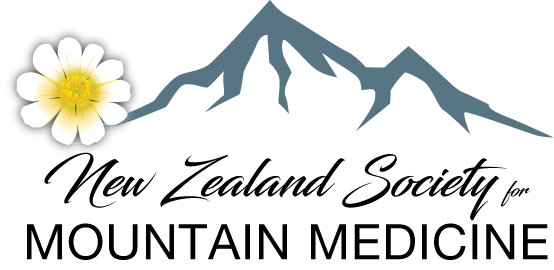
The Mountain Medicine Hui that never was – but hopefully will be…..
April 12, 2020The Third Space (r)Evolution
November 17, 2020Extended Care in Mountain Medicine (and Pandemics) …..
Long before the Covid-19 virus spread across the world, I approached The New Zealand Alpine Club’s magazine to see if they would be interested in a medically related article that looked at a less explored side of Mountain Medicine – Psychological First Aid.
With the benefit of hindsight the timing of the article seems prescient. Much of the evidence for psychological first aid comes from our experience in wartime, or humanitarian disasters like floods, earthquakes or pandemics .…
‘Be kind’, was the message that the Prime Minister, Jacinda Ardern offered at the start of New Zealand’s level 4 lockdown as part of its effort to control the spread of Corona Virus. An apt sentiment as kindness and caring are at the heart of psychological first aid.
Working in healthcare over this time, the isolation, disruption to routine and stress that many have been thrust into is evident. Through the pandemic the world is in the midst of a double crisis in healthcare – one affecting not only the physical, but also the mental health of millions around the globe. Though unseen, the mental health issues may well be more pervasive, long lasting, and with no less a cost to the functioning of society in the long run.
A ‘stress injury’ forms when you either have, or witness a traumatic event. If this ‘stress injury’ isn’t dissipated and continues to ‘overwhelm’ the victim mental health issues can arise down the line. The same principles are true for the current Covid situation. Individuals are faced with a traumatising situation and are left feeling overwhelmed by events that they have little control over. The First Aid bit is realising that there are some simple things that you can do and say to mitigate, or reduce the ‘stress injury’ overwhelming the victim.
All primates including humans are incredibly social. Simple, positive social interactions reduce stress. This is no accident, it’s how we have evolved. Social interactions stimulate the production of the hormone Oxytocin in our brains. The Oxytocin in turn modulates other hormone systems, (including the Hypothlamus / Pituitary / Adrenal axis) reducing the amount of the stress hormone, Cortisol that a person makes. This in turn dials down the stress. From a biological point of view this is why reaching out and holding someones hand is so meaningful .… and, why the social distancing we have endured has been so stressful for many.
Understanding, even in simple terms how stress can affect a patient (and responders) is really helpful in optimising outcomes for all concerned. It is often poorly understood, (even by medical professionals ….) that stress affects your basic physiology – respiration rate, blood pressure and heart rate quite significantly.
Stress also significantly modulates how you feel pain. Massive amount of stress = massive amounts of pain. We have all seen the mother soothing and settling down that screaming child, whose pain from the grazed knee quickly dissipates. Similarly, if you can effectively control someones pain with timely and appropriately dosed analgesia then you massively reduce their stress and improve their physiology (and potential outcome) in the process.
I mention all this fluffy stuff not only with regard to the ‘new world’ that we are all living through. But in talking to many Kiwi outdoor professionals a recurring theme has been managing patients for extended periods of care with little in the way of resources. While this is a sizeable subject on its own, it is worth mentioning in the context of psychological first aid.
Paying attention to stress and building its mitigation into your physical, patient assessment (and patient record) requires little in the way of extra equipment. Making a patient feel safe, calm and connecting with them is really important. As is giving them hope. These are central to the task of extended patient care.
Similarly, considering and fulfilling basic needs for your patient (e.g. Maslow and his heirarchy of needs) – shelter, warmth, food/drink and toileting requires little in the way of extra specialised equipment but makes a massive difference to the experience for a victim and rescuer. Indeed this is stuff that many of us would do intuitively, but making it a formal part of your management and record keeping is a way to ensure it happens when you might be stuck for hours and your mind is on other things …
Kia Kaha,
Dr Robin Barraclough
P.s.
Attached below is the psychological first aid article I wrote for Climber magazine (with thanks to NZAC). Additionally, below is a link to a sample of patient assessment form, which contains the 5 domains to reduce a ‘stress injury’ (with thanks to the Responder Alliance website).


